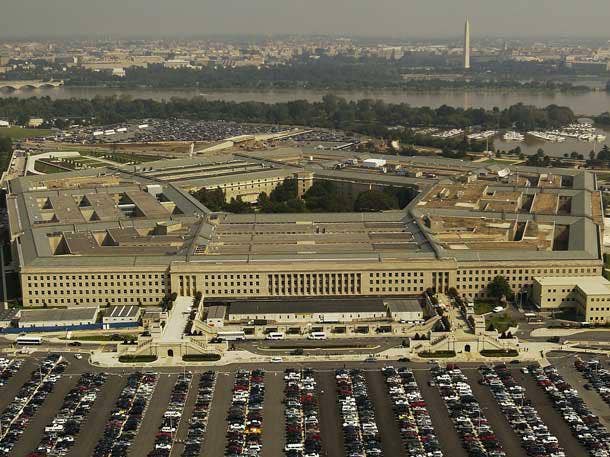Microsoft VP Asks AWS To ‘Stand Down’ On JEDI Cloud Protests
After Amazon filed a new agency protest with the Pentagon, Microsoft exec Frank Shaw says the military is poised to benefit from the latest advances in enterprise cloud ‘only if Amazon gets out of the way.’ But AWS says it only wants a fair evaluation after the military amended behind the scenes its RFP for a deficiency identified by a federal judge.

A Microsoft executive urged Amazon Web Services to “stand down on its litigation” opposing the award of the military’s lucrative JEDI commercial cloud transformation contract, arguing the ongoing legal and administrative challenges are keeping the best tools out of the hands of U.S. warfighters.
The statement from Frank Shaw, Microsoft’s corporate vice president for communications, came in response to Amazon’s latest attempt to compel a re-evaluation of the potentially $10 billion contract won by Microsoft—a protest filed Monday directly with the Pentagon.
The Defense Department’s “decision to source a Joint Enterprise Defense Infrastructure (JEDI) contract to deliver the latest advancements in enterprise cloud could be a great step forward,” Shaw said. “But only if Amazon gets out of the way.”
[Related: Here’s Where The Pentagon’s JEDI Cloud Program Stands]
Shaw repeated Microsoft’s now-common refrain against AWS: the cloud market leader bid too high, and it is now looking for a “re-do.”
“This latest filing – filed with the DoD this time – is another example of Amazon trying to bog down JEDI in complaints, litigation and other delays designed to force a do-over to rescue its failed bid,” he said.
But AWS points to an early win in its federal court challenge to the sourcing decision as evidence that its protests are valid, and the market leader is making clear it’s not going to give up in seeking answers from the military.
Two months ago, Amazon convinced Judge Patricia E Campbell-Smith, who sits on the U.S. Court of Federal Claims, to halt Microsoft from moving forward with task orders and beginning implementation of the massive cloud transformation initiative. Campbell-Smith cited a single deficiency in Microsoft’s nearline storage capabilities but did not continue in analyzing several other issues raised by AWS.
In winning the restraining order, Amazon set in motion a chain events that have left its lawsuit, which seeks a court-ordered deposition of President Trump, as well as Defense Secretary Mark Esper, in limbo.
Campbell-Smith remanded the procurement for 120 days back to the military for corrective action. Since then, Pentagon leaders have amended their RFP—changes, as is the rule for such protests, not revealed to the public.
The remand halted proceedings in Judge Campbell-Smith’s courtroom that were set to decide if the president, and current and former defense secretaries, could be deposed by Amazon to support an argument that political interference stemming from Trump’s animosity to Amazon CEO Jeff Bezos torpedoed the company’s bid.
An AWS spokesperson said the agency protest is an attempt to clarify the military’s latest amendments to the RFP after Judge Campbell-Smith identified at least one deficiency, according to an AWS spokesperson.
“AWS repeatedly sought clarity from the DoD around ambiguous aspects of the amended solicitation and the DoD refused to answer our questions,” the AWS spokesperson said. “We simply want to ensure a common understanding of the DoD’s requirements and eliminate ambiguity that could impact a fair evaluation.”
AWS said there’s no surprise Microsoft “is trying to posture here.”
“Anybody who's studied the cloud computing space will tell you that AWS has a much more functional, capable, cost-effective, and operationally strong offering.”
Microsoft also cited a recent DoD Inspector General report that didn’t yield any evidence the procurement was marred by political interference.
“The DoD’s independent Inspector General made it clear that the department established and followed a proper procurement process,” Shaw said.
But in that investigation, the Pentagon’s watchdog noted that media reports of Trump’s statements about Amazon, as well as ongoing protests and lobbying by several companies vying for the contract, “may have created the appearance or perception that the contract award process was not fair or unbiased.”
And the Inspector General’s team, which consisted of auditors, criminal and administrative investigators, defense acquisition professionals and attorneys, completed its review without the participation of the White House, which tried to impose conditions that were too impractical and likely would result in incomplete information, the report said.
The Trump administration’s claim of presidential privilege resulted in several witnesses being instructed by the DoD Office of General Counsel to not answer the investigator’s questions about communications with the White House, the IG noted.